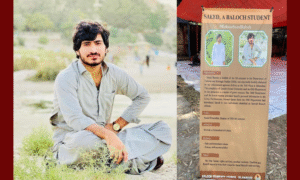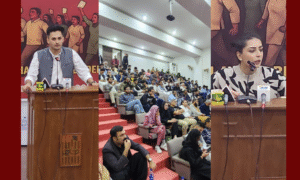Faizan Raza
Without an iota of doubt, water is that natural resource that is synonymous with life. Rivers were the epitome of some of the greatest civilizations in human history i.e Indus Valley civilization and Mesopotamian Civilization, so human learned it quickly that controlling water resources can be fruitful aid in governance. This was mainly because life revolves around water and its related resources. This is why Britishers during their company days used the Indus to navigate the entire region for trade before becoming completely dominant.
A similar policy was formulated in our internal politics. The present-day shortage of water has been pervasive and has its roots back in the 19th century. Sindh and Punjab have the status of lower riparian and upper riparian in the water distribution of Indus. Complexities started to occur soon after the war of independence of 1857 when Punjab constructed Central Bari Doab Canal. Due to being lower and upper riparian the distribution of water had to be just and equal and many schemes capable of undermining the share of Sindh was illegal but no heed was paid.
After that from 1885 to 1901 Punjab constructed several canals without the prior permission of Sindh. These included Sindh Nai, Lower Chenab, Lower Jhelum, Baharpur Canal, Upper Doab Canal and Lower Bari Doab Canal. Due to these canals, Punjab started to receive more water than before and what made it uglier was the shying away from giving the right of Sindh over Indus as it had a status of lower riparian.
Then in the year, 1901 the Indian Irrigation Commission was constituted and now it became a legal obligation to seek Sindh’s consent before constructing any Canal or Headwork over the Indus or any other river of the Indus river system. However, flouting the rules Punjab government proposed the Thal project over Sutlej in 1919, which was rejected by Lord Chelmsford initially but the Punjab government re-proposed it in 1924 seeking only 750 quests water. Upon this reservation was posted by Sindh for which a committee under UP irrigation chief engineer Mr Anderson was constituted. The final findings suggested that Punjab would require the consent of Sindh.
The reservation persisted and Punjab continued to violate the laws of natural justice when in 1941 it announced the construction of Bakhra Dam. It was at this point a complaint was filed with Governor-General who then formed a conclusive committee under Kolkata High Court judge Justice B W Rao. The findings of this commission came in 1945 where it was decided that any decision regarding the Indus river system had to be taken with consultation of Sindh and at a point where Panjnad is formed, 75% of a water share is reserved for Sindh while the rest can be used by Punjab.
However, in the light of established precedent, the ruling elite of Punjab didn’t pay heed to such a decision and when Pakistan became independent 3 rivers of the Indus river system were sold to Indian Punjab without any consultation with Sindh.
The unjust and undemocratic process prevailed after partition and when Tarbela was erected on Indus without due consultation and since then we are living in a fiasco. Even today we hear that water is being wasted as it is poured into the sea
instead of storing it by constructing new dams.
The stalwart advocates of new dams ignore the existence of the Indus Delta spread over District Thatta, Badin and Sujawal. If river water doesn’t reach the sea it would result in sea encroaching the land. Millions of acres of land have already been claimed by Sea and according to a recent study, Karachi could be submerged by 2050 if the situation further worsens. This could also result in territorial and national security concerns because in the light of internal law and treaties beyond 22 nautical miles starts international waters. If Delta is completely eroded then the geographical demography of Pakistan may need to be amended.
Lastly, the most obvious crisis would be economic as the livelihood of the masses is attached to Delta. Huge fishermen communities may come under existential threat if their historic land is claimed by Sea. Also, if Delta deteriorates, the law and order situation may be compromised.
The Students’ Herald News Desk focuses on reporting the latest news regarding student politics and campus updates to you.
The News Desk can be reached at admin@thestudentsherald.com




